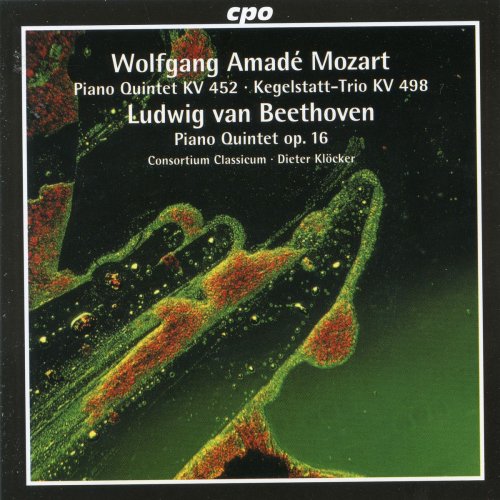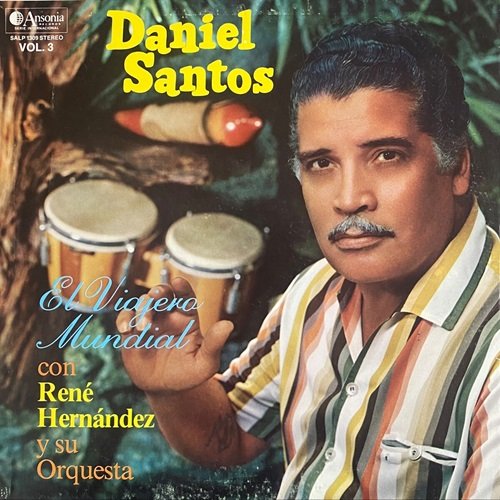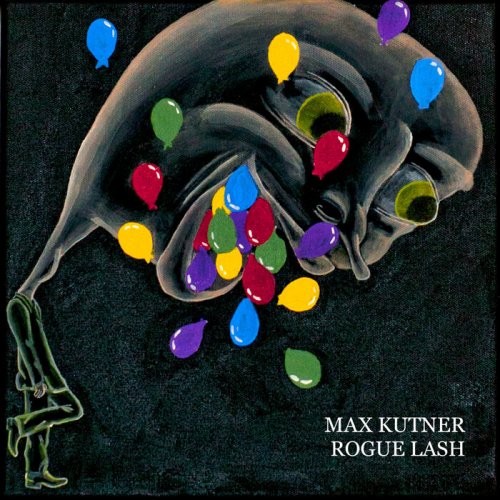Dieter Klöcker - Mozart & Beethoven: Chamber Works (2005)

Artist: Dieter Klöcker
Title: Mozart & Beethoven: Chamber Works
Year Of Release: 2005
Label: CPO
Genre: Classical
Quality: FLAC (tracks)
Total Time: 68:18 min
Total Size: 281 MB
WebSite: Album Preview
Tracklist:Title: Mozart & Beethoven: Chamber Works
Year Of Release: 2005
Label: CPO
Genre: Classical
Quality: FLAC (tracks)
Total Time: 68:18 min
Total Size: 281 MB
WebSite: Album Preview
01. Piano Quintet in E-Flat Major, K. 452: I. Largo - Allegro moderato
02. Piano Quintet in E-Flat Major, K. 452: II. Larghetto
03. Piano Quintet in E-Flat Major, K. 452: III. Allegretto
04. Piano Quintet in E-Flat Major, Op. 16: I. Grave - Allegro ma non troppo
05. Piano Quintet in E-Flat Major, Op. 16: II. Andante cantabile
06. Piano Quintet in E-Flat Major, Op. 16: III. Rondo. Allegro ma non troppo
07. Piano Trio in E-Flat Major, K. 498 "Kegelstatt": I. Andante
08. Piano Trio in E-Flat Major, K. 498 "Kegelstatt": II. Menuetto
09. Piano Trio in E-Flat Major, K. 498 "Kegelstatt": III. Allegretto
This is a digitally re-mastered reissue of recordings originally made in 1978 and 1981. In anticipation, I thought it dangerous to program the relatively slight Beethoven work next to the Mozart masterpiece—“the best I have yet written in my life”—on which the younger man may well have modeled it. But together with that indefatigable clarinetist and animator Dieter Klöcker, pianist Werner Genuit, oboist Gernot Schmalfuß, horn-player Nikolaus Grüger, and bassoonist Karl Otto Hartmann give the Beethoven so vigorous and musically perceptive an outing that it really sounds, this time around, worthy of its place alongside their equally compelling performance of the Mozart. The Mozart trio, too, where Genuit and Klöcker are partnered by violist Helmut Nicolai, is finely played. Incidentally, I had never previously noticed how strongly the phrase that begins 50 seconds into Beethoven’s slow movement resembles Strauss’s setting of the words “beieinand für alle Zeit” in the duet for Sophie and Octavian just before the end of Der Rosenkavalier. Perhaps this is fanciful, but I should like to think that the young Strauss may have heard his horn-player father Franz in a performance of the Beethoven and filed it away in his subconscious for years, before bringing it out to follow the echoes of Mozart’s Die Zauberflöte (“Könnte jeder brave Mann”) and Schubert’s Heidenröslein with which that duet begins.
The only real negative about the disc (which is, by the way, very well engineered) is the omission of the repeat in the Larghetto of the Mozart quintet; there would have been ample room for its inclusion. As distinct from a negative here, there are also some strong positives elsewhere. On a Hyperion disc that I reviewed enthusiastically in 25:5, the Gaudier Ensemble couples a superb performance of the Mozart quintet with three of the composer’s other chamber works, including the Oboe Quartet; and the classic Kentner-Kell-Riddle performance of the Clarinet Trio probably remains the touchstone for that elusive but wonderful composition. Nevertheless, cpo’s offering may be confidently recommended to anyone seeking accomplished performances of just the three works it contains.
The only real negative about the disc (which is, by the way, very well engineered) is the omission of the repeat in the Larghetto of the Mozart quintet; there would have been ample room for its inclusion. As distinct from a negative here, there are also some strong positives elsewhere. On a Hyperion disc that I reviewed enthusiastically in 25:5, the Gaudier Ensemble couples a superb performance of the Mozart quintet with three of the composer’s other chamber works, including the Oboe Quartet; and the classic Kentner-Kell-Riddle performance of the Clarinet Trio probably remains the touchstone for that elusive but wonderful composition. Nevertheless, cpo’s offering may be confidently recommended to anyone seeking accomplished performances of just the three works it contains.

![Gabriele Di Franco - The Value of Choices (2026) [Hi-Res] Gabriele Di Franco - The Value of Choices (2026) [Hi-Res]](https://www.dibpic.com/uploads/posts/2026-03/1772720084_zi78jg17e4q61_600.jpg)


![Julius Hemphill - Dogon A.D. (Remastered) (1972/2026) [Hi-Res] Julius Hemphill - Dogon A.D. (Remastered) (1972/2026) [Hi-Res]](https://www.dibpic.com/uploads/posts/2026-03/1772427281_cover.png)
![Mosaic - Unfolding Tiles (2026) [Hi-Res] Mosaic - Unfolding Tiles (2026) [Hi-Res]](https://img.israbox.com/img/2026-03/05/9gt7lxt43bibxrmfl6nca8miy.jpg)

![Hanna Paulsberg Concept - Waltz for Lilli (2012) [Hi-Res] Hanna Paulsberg Concept - Waltz for Lilli (2012) [Hi-Res]](https://www.dibpic.com/uploads/posts/2026-03/1772432856_zl4ax53u6ddcs_600.jpg)
![Joachim Lyche - Primal Heuristics (2026) [Hi-Res] Joachim Lyche - Primal Heuristics (2026) [Hi-Res]](https://www.dibpic.com/uploads/posts/2026-03/1772436217_cff801v4shrqy_600.jpg)